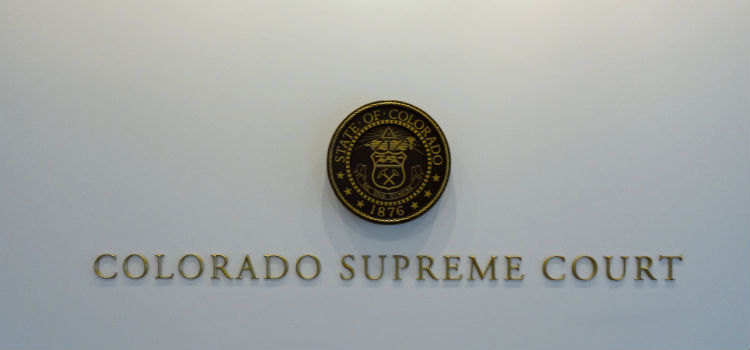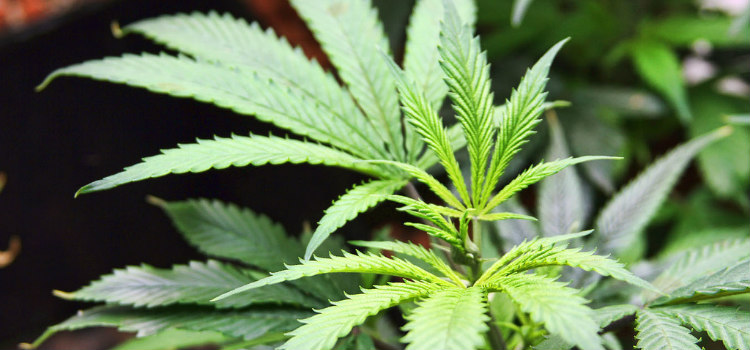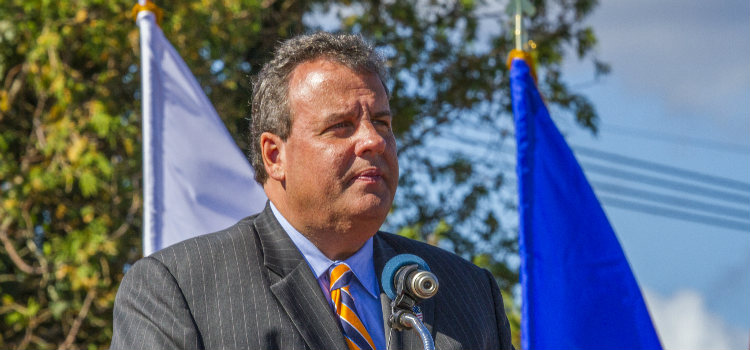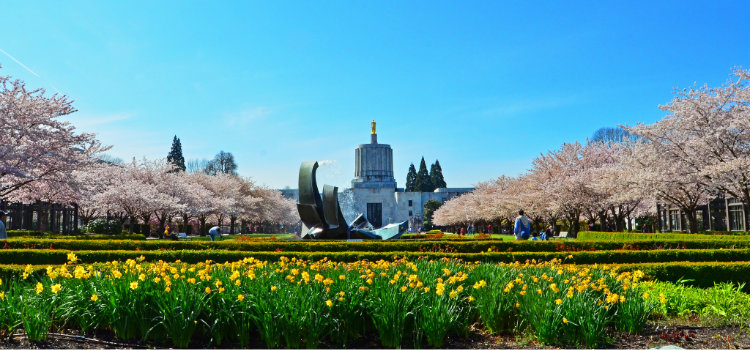 The cannabis legalization movement has gained serious momentum over the past three years, and with Congress’s decision to restrict the DEA from interfering with state medical programs and the Obama Administration’s recent move opening the doors to medical marijuana research, it seems that the movement’s future is looking stronger each day. While it would be easy to speculate that these events are simply an inevitable fate brought on by the bad karma of prohibition, the reality is that all of this progress is due to the hard work of activists and experts who have dedicated their lives to cannabis policy reform.
The cannabis legalization movement has gained serious momentum over the past three years, and with Congress’s decision to restrict the DEA from interfering with state medical programs and the Obama Administration’s recent move opening the doors to medical marijuana research, it seems that the movement’s future is looking stronger each day. While it would be easy to speculate that these events are simply an inevitable fate brought on by the bad karma of prohibition, the reality is that all of this progress is due to the hard work of activists and experts who have dedicated their lives to cannabis policy reform.
In our latest podcast, Shango Los interviews Dr. Dominic Corva of the Cannabis and Social Policy Center (CASP) about the current state of international cannabis policy and what he believes the future holds in store for the industry. Dr. Corva is a political geographer and public policy scholar who has been a professor at Sarah Lawrence College and Humboldt State University. He has written extensively on both international drug policy in the Western Hemisphere as well as the political economy of cannabis agriculture in southern Humboldt County.
“The biggest misconception is that legalization means that everyone is more free to engage in cannabis commerce, when in fact, legalization clearly means that new lines are being drawn.”
In the interview, Dr. Corva explains how scholarly research and the tracking of data with mandated seed-to-sale tracking systems is helping us better understand the inner-workings of the industry, and he discusses how the legalization of cannabis in several US states has left the door open for other countries to follow suit. He also discusses the ways that Emerald Triangle growers in Humboldt County would be affected if California were to legalize cannabis for recreational purposes.
Subscribe to the Ganjapreneur podcast on iTunes, Stitcher, SoundCloud or Google Play.
Listen to the Podcast below:
Read the Transcript:
NOTE: This transcript was auto-generated and may contain errors.
Shango: Welcome to the Ganjapreneur.com Podcast. My name is Shango Los and I will be your host today. Doctor Dominic Corva is founder, and executive director of the Center for the Study of Cannabis and Social Policy. Doctor Corva is a political geographer, and a public policy scholar. He was most recently a visiting assistant professor in public policy at Sarah Lawrence College, and continues to be an affiliate researcher for the Humboldt Institute for Interdisciplinary Marijuana Research at Humboldt State University in Arcata, California. His work has been published in the International Journal of Drug Policy, Political Geography, the Annals of the Association of American Geographers, and ACME: A Journal of Radical Geography.
His dissertation research examined the political economy of international drug policy in the Western Hemisphere, and his postdoctoral research has focused on the political economy of cannabis agriculture in Southern Humboldt county. In his current role as executive director at CASP, he studies cannabis policy at the state, national, and international levels. The center conducts original, sociological, and quantitative research, and shares this research for the public good. The center also acts as an incubator of sorts, for new non-profit cannabis organizations, and education efforts. Welcome Doctor Corva.
Dr. Corva: Thanks Shango.
Shango: Doctor Corva, in many states there are now cannabis magazines with journalists writing about cannabis in culture. Your organization conducts research at many levels, and studies an array of important evolving issues, what do you see as the primary differences between what the Center for the Study of Cannabis and Social Policy does, verses what a cannabis magazine reporter does?
Dr. Corva: Well Shango, I would say that the main difference is context. We bring scholarly context to the information that we gather and disseminate, so that means a couple of things. One, is through the big picture. It’s one thing to know when’s the first million dollar sales day, and what that really means sort of in a bigger picture. We are interested in learning about things that are not yet news, is another good distinction, is that we’re not driven by the news cycle, but in some ways we drive the news cycle by creating information that people are able to see what’s going on. The other thing, of course, is we’re embedded in cannabis policy and markets, and journalists, often are, moonlighting. They ask a lot of great questions, they get a lot of answers, they report on it and they move on. This is, of course, what we’re doing for the long haul, so our information has to matter for the long haul, not just for the short term media cycle.
Shango: When you talk about your developing the information yourself, what is it that the Center does to generate this content? What exactly are you doing on a day to day basis?
Dr. Corva: We are an epicentral information node, which means that I talk to people all the time through a number of different ways. Some are simple like call them up, and ask them what’s going on, some are ongoing relationships, some which I regularly get together to exchange information about what’s going on in the processing market, for example, or what’s going on with inventory. I put everybody’s information they feed me together and I synthesize it. It’s a lot of primary data that is based upon an ethnographic approach where I talk to people quite often on a structural basis for each field of interest that is appropriate for cannabis markets and policy. Also we of course gather and synthesize primary data that is quantitative in nature, so for instance the information that’s publicly available, and also information we request from the liquor control board. It comes in Excel spreadsheets. We have to actually visualize that data and explain what it means to the public.
We take raw data, and process it, so that people can understand what’s going on. This applies also to information I get from my contacts in California and Oregon. I participate in civil society, is the other way I get information. The Oregon Sungrowers Guild, for example, had me in for their inaugural talk to them once Oregon passed this measure, the Sungrowers in Oregon were like, “What do we have to look out for?” They had me come in and give a talk about that, and they also consult with me … Have been consulting with me since then, to get feedback on steps to take, and so forth. I’m also participating in Washington state, in a number of civil society initiatives that are about establishing common ground, so Washington Cannabis Commission is an example. There’s an umbrella organization that doesn’t try to get everybody on the same agenda, but tries to get the parts of everybody’s agendas that are in common, to be working together.
Obviously the people that I meet in participating in those sessions all have individual industry interests, but they’re working out what’s different about them, and what are their commonalities, what’s their common ground. That’s definitely a good role for a non-profit information center to be playing.
Shango: As more states move toward normalization, and you’re able to share the successes and failures of Washington and Colorado, and the other places that you’ve studied, it almost sounds like that the newer states, who are having you coming to speak, you’re kind of distributing best practices in a lot of ways.
Dr. Corva: Yeah absolutely, I’m not inventing them, I’m hearing about them, hearing people debate them, watching what comes out of those debates, seeing how they’re resolved, and then how they’re corrected later. In a way the learning experience, the learning curve in Washington state is an experiment that people can learn from now, it’s process, instead of just it’s results. The results you can see in the news, they get reported on, but the process, how we get there, that’s the most important information for people in other states, because that’s what they’ve got to go through first. They can see outcomes, they can see outcomes they might want, or not want, but they have to understand what the process was in order to avoid, or replicate, outcomes.
Shango: Are you seeing that a lot of the new states that are moving towards normalization are reaching out, and they’re looking for mistakes and best practices from Washington? Or do you find that each state is more wanting to reinvent the wheel itself.
Dr. Corva: The former, the former for sure. When they’re learning from mistakes that means that they do have to reinvent the wheel in some ways. The tax policy that we follow in Washington state is not one other people want to follow, so what do they do? We don’t really have a model for that yet. Oregon’s rules are still being made, but the initiative passed with the idea that cannabis be taxed at the producer level, at $35 an ounce. California, is taking a proactive approach, their policy makers are ahead of time getting to know what the production system is like inside California, before they figure out what the tax situation should be. As opposed to Washington where the initiative was written, the production landscape was a total mystery, nobody understood that, but they made policy anyway, which is why we’ve had the problems.
California, of course, there’s so much more at stake, because it’s the national provider, essentially, of cannabis, the domestic producer. They really have to get it right from the get go, and I’m finding that those people are reaching out to learn from, and discuss, with the potential experts how to move forward. I brought Todd Arpley, a very respected CPA in Washington state, down to California to talk to the California Board of Equalization, so that an accountant could talk to them, not just a policy guy like me. I’m not an accountant, so there’s a limit to how much I can tell them about what they could do. What I could tell them was our mistakes, and then Todd could say here are the options, here’s the options that we’re considering now in Washington. Talk to the other tax people in California, to see how those might work with their particular system and rules.
Shango: It sounds like what CASP is doing is to connect people and move the intellectual capital around between these different locations to benefit smart cannabis reform.
Dr. Corva: Absolutely, it’s about, essentially, networking together all these folks who are trying in principle to do the same thing, but not sure really how to go about it. The thing is is that I don’t, necessarily, tell them what the right thing is to do, I link them up with the people who have the deep specialized knowledge, that otherwise they couldn’t find. They could have dug for a bit and found Todd, for example, but there was a shortcut, me. I’m organizing a flow of information that will inform policy making, because policy that succeeds is based on reality. If the reality is not understood, then we’re going to get bad policy.
We’re networking together, good information, in a way that allows, creates, space for good policy to be made, rather than claiming, like the authority, this is what’s happened, and this is what should happen, therefore you do this. That doesn’t work, this a field that’s brand new, it’s opening up. One thing I think is unique about what we provide is humility with the respect to the possible information. I’m deep into it enough to know that we’re scratching the surface. It’s going to take a lot of different heads together to really define that surface. No one person should be going around claiming the authority then that they know it all. We have a lot of humility with respect to the information that we have, and that means creating space for a collective understanding to be developed. It’s much more powerful than a private approach.
Shango: I know from following your blog that you’re in Colorado, and you’re back in Washington, and then you’re in Humboldt, and then you’re in Europe on some panel somewhere. Here in the United States, Humboldt County is pretty much the birthplace of American Cannabis. As normalization continues the heritage growers in the Emerald Triangle seem to be like they could be at risk of being squeezed out by corporate growers in California. In the time that you’re going back and forth, and move this intellectual capital back and forth, how do you see this playing out? What do you think the future holds for California’s heritage growers?
Dr. Corva: It’s a lot more promising because of what’s happened in the last year and a half in California in terms of organizing. The growers have historically been separate from reform efforts, that is they’re not participating in it, and when they do, it’s really has historically been out of sort of fear and reaction. It’s like, this could kill my business, therefore I don’t want it. In the last year and a half folks have gained a collective understanding that by participating in the process, they can secure a future for themselves. Standing apart from it, or being against it, is not going to help them. This is especially evident in California Cannabis Voice, new efforts by the Emerald Growers Associations, which is totally rebooted itself, from being a defensive trade association to a proactive, in Sacramento, talking to policy makers about why the producers should be at the table when you make your rules, and make your policy about cannabis legalization. They’re able to make those arguments, not just out self-interests, but to frame them as being in the general interest.
You have a production system already, if you make a different production system, what you’re creating is a potential for a lot of conflict. And actually it makes your life a lot harder, because you have to reinvent the whole new production system, look at Washington state, and how our production system is a new one. It didn’t really build bridges from the old one, so it’s a lot harder to get off the ground. From day 1 if you have people who are experienced, and already have practices, and are adapting them to a more professional landscape, then you have a more efficient system that works in terms of production, than one goes through these waves of dysfunction where you’ve got too few retailers, too much product in one season, the previous season, the opposite problem, not enough supply, too many retailers. It changes overnight.
While that shouldn’t have been a surprise to anybody that understands agriculture in general, but certainly cannabis agriculture, where the seasonality is understood, inventory is understood. Those don’t have to be reinvented in a new system, they have to be adapted to a new system, so it’s a robust one that’s not actually in competition with the old producers. It’s not in competition because the old producers are there, and they’re part of that system, and they’re helping create something that is positive for the state in general, society in general, rather than antagonizing it as the black market, or the medical market, or whatever else.
Shango: Do you find that any of the states are actually effectively doing this so far? I know we’re recording this in Washington state, which I’m most familiar with, and here pretty much if you had cannabis experience, you are actually on the outside of cannabis legalization.
Dr. Corva: Yeah.
Shango: Hopefully folks are learning from our mistakes, in that.
Dr. Corva: Absolutely.
Shango: Is anybody doing it the right way yet?
Dr. Corva: I think Oregon is definitely a really good example. Again, we’ll see what happens, they’re still in the middle of their process. The Growers Organizations knew ahead of time that they needed to be a part of that process, they need to have that input in there, so they hired a lobbyist before the rulemaking committee even started. The lobbyist has been in the room, which often that meant in other organizations in Oregon from the heritage tradition, so they’re able to be informed as to possible directions that could hurt them, and to actively attempt to coopt those efforts. They’re in the room basically, they’re helping make the rules, and I think it’s going to really help Oregon’s program be strong and endogenous.
Oregon has some unique problems too, you know Washington or California, but in general … I’m on an Oregon listserv, the DPFOR, which is the listserv about everything going on with legalization in Oregon, and every major organization is on that listserv. Since I got on it I have a whole column that is labelled forums in my Gmail account, it is 99% DPFOR posts. I get hundreds of them everyday. People are really involved and paying attention, and that means the processing … It looks messy if you look at my email list, it means it’s democratic, it means things are being worked at now, rather than needing to be reacted to later. And I think that shows great promise for how Oregon is going to work out.
Shango: It sounds like not only the citizenry are activated and participating, but there’s a higher chance that the Oregon legislators are actually having their ears open. In Washington, we hired outside consultants and it all kind of happened behind a curtain, and then it was dropped on everybody. Whereas the process you’re describing in Oregon as democratic, it sounds like it’s way more inclusive.
Dr. Corva: Definitely. The defining feature of BOTEC was that it was a group of outsiders. The Kleinman Group was a pro-group, and it had a lot of national names on it, and think tank names, and so forth, almost none of them had any knowledge whatsoever of actual Washington existing markets. The information they were able to provide the LCB was abstract, it wasn’t connected to what the realities and the stigmas of Washington state. That really is a huge deal, is that Oregon didn’t put out a national call for a consultant to come help them design their system, they recognized that they had people who knew what they were doing already in Oregon. Those are the people they needed to listen to design the system.
Shango: Do you see any positive feedback coming back to Washington from this process? Specifically we kind of botched it up to begin with, and then Oregon is watching what our lessons were, and are doing it in a more inclusive way. Do you a second wave in Washington opening up, or do you think that now that we’ve made this bed, and are a bit mired, we’re kind of stuck in it still?
Dr. Corva: We’re stuck in it. We’re definitely stuck in it. We’re getting worse in some respects because 2 years of struggling has meant that there are vested i502 interests, now, who were not part of the old landscape, who have a lot of money, and they are calling the shots in the legislature. The problem is we’re developing this elite cadre of cannabis professionals whose interest is in continuing to cut off the old guard, and making sure that they’re not competition. 5052 is a good example of that. There are elements of it that are helpful, and will bring in some of the old guard, then in particular the more professional dispensaries will be given a chance to participate in the system with medical endorsements.
We don’t know who’s qualified to determine whether someone should be endorsed medically or not. The actual ability to do so outstrips the mandate to do it. There’s time to work on it, and the best thing is that we managed to avoid the creation of new felonies. As long as we’re not moving backwards on the criminal justice side of it, then we’re still, I think, moving a little bit in the right direction. I think that the forecast for Washington is that the rules are being set by people who weren’t here 2 years ago, and how do we work with that. That’s the main challenge.
Shango: There are so many misconceptions in cannabis policy right now, not only from state to state, but even people who are involved, and are cannabis enthusiasts, and activists, they themselves are holding misconceptions either based on things that they were told, or always assumed, or their vision of the future. At the national level, what do you think are some of the most common … Let’s try this again. There are so many misconceptions in cannabis policy right, at the national level what do you think are some of the most common misconceptions held by cannabis enthusiasts and supporters?
Dr. Corva: The biggest misconception is that legalization means that everyone is more free to engage in cannabis commerce, when in fact, legalization clearly means that new lines are being drawn. That’s actually of a potentially negative benefit, or negative outcome, for folks who’ve been, for instance providing patients with lower, no cost medicine, for example. They’re not more free to do that under legalization, as we’ve made it in Washington state, they’re less free to do it. We celebrate legalization as though that means something just in general, that is just all positive. It is all positive for the criminal justice side of it, that’s important that they understand that part is true. Their ability to have sustainable livelihood in cannabis is potentially eradicated, unless they reinvent themselves in the formal market as consultants, or if they get with the right investors and are able to be a part of the new landscape.
Shango: The Center of the Study of Cannabis and Social Policy recently obtained a large dump of raw data from the Washington State Liquor Control Board, that everybody’s been talking about. The Center has lead the way in making sense of this obtuse dump of information. How is the Center going about it, and what are some of the very first insights that have come from the early study of that data dump?
Dr. Corva: We have established a working group of data professionals that we’re calling the Liquor Control Board Data Dump Working Group. We have a Trello account with assignments, and ways to divide up our efforts to process this data. Now it’s a raw data dump from BioTrack, it is not organized in a fashion that allows you to make easy sense of it. You have to know what to export into an Excel file in order to make it processable, and then to be able to visualize it and tell a story about it. It’s a really positive development because it means that the Liquor Control Board actually is offering us greater access to information they ever did before, but we need expertise, professional expertise, to make that happen, and that’s why we have the working group.
It’s negative in the sense that it’s just not clear, and also we have to learn BioTrack’s API, we have to learn their software, we need a level of professional attention to this, that we didn’t need before. That’s a challenge that we’re happy to actually rise to because of the wide array of different stakeholders, volunteer and otherwise, that want to make sense of this data dump. They can’t do it by themselves, so in addition to obviously me reaching out to certain data professionals, Doctor Jim McRae is a good example, we’ve had people reach out to us because they’ve gotten that data dump too, it’s public information request type thing. Even the folks who are providing subscriptions for the way they process the data are struggling with it. They’re all realizing that actually this is a collective effort, and at the very base we need to establish a system for being able to access it. Until we do that, nobody can make any sense of it. It’s a really interesting public-private partnership, I think, that’s developing.
Shango: What kind of data points are in there? Data can be a lot of things.
Dr. Corva: Almost all of them, this is the Seed to Sale [inaudible] System Dump. It’s not all of them, I do know that, that’s one thing that has been determined from our professionals, that there are data quality problems that are endemic, so for instance fields that are greater than 100% THC level is clearly … That’s a data quality problem. Fields that are empty, fields that have been mis-entered, so what we’re seeing here is the raw data that gets input by the producers, processors, and retailers, and there’s a lot of human error on that side. There are, beyond that, issues in the process of creating the information that maybe they entered correctly. Maybe there was a mistake at the lab, and that gets entered.
We’ve determined that the BioTrack system may be a little difficult in that regard, it’s only as reliable as the data that’s entered into it. People are still learning how to do that still. That moment when you open up the latest version of Microsoft Office, and you have learn like, “Oh, I’ve got to actually relearn how to do Microsoft Word. The buttons are all in the wrong places. Where’s that easy function?” It’s somewhere in there, you’ve got to find it. This is not necessarily the fault of biotrack per say, we don’t want to be adversarial about that, but it is a new system, are there are thousands of people with no expertise in data entry, entering data.
There are potential data quality issues, basically, that first we want to identify what data is good, there are systematic ways to do that that generally involve identifying outliers and getting rid of them, so that the data server confident. The outliers, the problem is drawing that grey line between what’s an outlier and what’s not really. We’re very early on that. In terms of the data that’s available, once we get the code broken, essentially, we will be able to say what labs have been testing THC at what percentage. We will probably be finding outliers for some labs that may be due to the way they do it. For instance the American Herbal Pharmacopoeia has standards that people are supposed to follow, but the LCB doesn’t have an auditing system for making sure they’re following it, so people are requiring far less in terms of their grams of sampling.
People are applying a different methodology, which the key one, I would say, is that your THC levels are always a combination of your actually your THC and THCA numbers. Your THC numbers are always really low in plants, because you have to decarboxylate the THCA to make it turn into THC. That process of decarboxylation isn’t 100% conversion, and so the standard is to apply a .8 … Multiply by .8, 80%, of the THCA, should become THC, add that to your THC, and that should be your total THC. Well some labs aren’t doing that. They’re not multiplying by .8, they’re just adding THCA to THC and that’s your THC levels, which has given us in the legal system, clearly, much higher THC numbers than the testing that was going on in the medical system.
The information when we visualize that when we show the public and policy makers that this is a problem, they can act on it. Again, not to identify bad actors, or criminal actors, but people who are figuring out how to do this. We can’t assume expertise. I’ve been saying for a while, for 502 legal cannabis, if you got a day in it, you are in the 1% in terms of expertise level in the population. That 1% includes people that have been there from day 1. You’re at the tail end of that, but you’re still more expert than everybody else. The folks who have been there from day 1 are still also just figuring this out. There’s just so much room for error, that it’s important for us to be able to look at the big picture in there and kind of determine where are things going weird.
We should be able to get the inventory story, which has been a difficult monkey to track down, which would help us understand, for example, what needs to be sold, and what’s being produced right now, and compare that with what’s going through the velocity of it, going through the system, out the retail doors. Are we building industry inventory, or is it shrinking? The dynamics of it are very strange, because we have to understand that obviously indoor production is coming online strongly right now. Then we’re going to have a huge outdoor production in the fall, and yet you add those together and like, what are we looking at in terms of prices? When you have this much oversupply and very limited retail landscape.
We’re not opening up retail stores at a rate that we’re increasing production. That’s the short story. The data dump will tell us exactly what are the dimensions of that, and what people maybe should be thinking about in terms of maybe we need to open up twice as many retail stores. Policy makers are considering exactly that right now, but until they actually have that information in front of them, they’re not going to know how dire the situation potentially is.
Shango: Last week your organization released an infographic with just the very, very, beginnings of making sense of this data. I think it was mostly on inventory. What is anything from that data that you found surprising, or against what everyone’s assumptions were that there was going to be in there?
Dr. Corva: There was a lot of panic about the fall harvest and overproduction that crashed prices to a degree that was very problematic for all these producers who are still dealing a 3-tiered tax system, and are still attempting to recapitalize what they lost in the first year and a half of trying to actually open up. There was huge panic, there numbers that were thrown out there, irresponsibly, saying there was 30,000 pounds of inventory that were based on nothing in particular other than we know that this was the canopy, and we know how many pounds were produced up through December 7th. That was the cut off point for the LCB keeping track of it. People were panicking like this is a huge problem, the LCB system is going to crash because everybody is going to go out of business.
Where in fact … My initial response to that was, wait a second. Of what was harvested, the LCB standard is 1 to 1, buds to raw material, in terms of what the plant produces, so first of all cut your 30,000 pound estimate in half, right away, to 15,000 pounds. Which is still a lot, but manageable. Then actually we need to go back and check that 1 to 1 ratio again. This infograph which was produced by the LCB, and is supposed to be a weekly production, but we haven’t gotten any further iterations even though we’ve put forth more information requests. What it showed was approximately, in terms of usable bud flower, to go into the system, there were a total of about 15,000 pounds that was produced between July and December, as opposed to a total of about 25,000 pounds which we were kind of thinking might have been the case, and also it’s ratio to the raw material was much more like 1 to 3. 1 pound of usable buds to 3 pounds of raw material, which means that your inventory of buds is not nearly the problem that folks were saying.
You can see that in February, if you look at the trajectory of prices stabilizing, it started stabilizing in February. Which is not consistent with a massive glut. There was a glut that was clearing, that’s the story that was telling me. That infographic showed how that seemed to be the case. One we were off on the raw material to usable bud production ratio, and two, that it was clearing. The surprising thing is that I think we’re up to about 700 pounds a month of indoor production, which was a little bit more than I thought we were at, and certainly we’re showing more every month in a way that is, again, not consistent with our retail stores opening up.
Shango: Outside of what the WSLCB is reporting through their infographic, what has your team at the Center for the Study of Cannabis and Social Policy started to pull out of the data that you might find surprising? Is it too early for you to speak on the data or is there anything that you’ve seen right off the bat. You’re like, “Wow, this is interesting.”
Dr. Corva: It’s a bit early to be honest. The basic stuff in the infographic is what we’ve been able to pull so far, and that’s kind of just reinventing their process to get at the infographic, so that’s not super surprising. The sales data is not surprising, the sales data is the most reliable data, that’s the most successful data from the data dump. I think that the evolution of the processing industry, the very beginning peek into that, is most interesting to me. It wasn’t a surprise to me, but maybe a surprise to the public, is that CO2, oil, wax, shatter, but this products are in the 502 market. They’re a little more expensive than they ought to be, but they’re coming online, and to me, that’s the inventory that you need to look on for profitability for producers and processors, is that there’s so much growth potential for, in particular, the concentrate production, and that will take care of inventory in ways that selling buds will not. Whether that means raw material, or ‘B’ buds, or buds you weren’t able to sell, because they were inferior in terms of their bag appeal. That goes into the processing system, and that processing capacity is starting to develop. They’ve got plenty to work with and those prices should be coming down.
Shango: Let’s change our focus from the state and national level to the international level. This week CASP and a consortium of over 100 human rights and drug policy organizations released an open letter calling on the UN to respect changing drug policies within a number of countries, like ours, and to prioritize human rights over punitive law enforcement in it’s approach to drug laws. Will you please tell us about the disconnect between the evolution of drug policy of UN member nations, and the difficulties that the UN body is having adapting to these changes?
Dr. Corva: Oh, yeah, yeah. The UN drug control system was initially really structured by, and disciplined by, the US State Department in conjunction with a few key allies, that maybe you wouldn’t expect. Countries like Italy, Japan, even some Scandinavian countries, all of whom wanted to place key diplomats into key positions, so there’s the politics of the UN itself, which has a lot of different bureaucracies, and every country is vying to put their people in positions of authority. We have a number of different UN drug control bodies within the UN who are all countries just sort of competing for getting to say something overall. The US has played a smaller, and smaller, role in what that looks like. Other countries have adapted or adopted the early US militant approach during prohibition in ways that may be surprising to some people.
I think that it’s fair to say that while the US is the author of the global drug war, other states have found it very, very, useful as well. They’ve learned how to find it useful in ways that the US maybe never anticipated, and certainly … China, for example. There are a number of other countries that are moving to get tougher on drugs, and move towards the old US approach on their own, and they’re in the UN, in key positions of authority. They push back against drug policy reform in ways that we wouldn’t have expected 20 years ago. It hasn’t gotten more democratic, it has gotten more bureaucratic, which means it’s very difficult to get things done.
One element of the UN drug control policy, maybe the health professional bureaucracy is more interested in harm reduction, but UN ODC drugs and crime, those are law enforcement professionals, and they don’t want the drug war to go away at all. At the same time there’s much more vocal opposition to the old paradigm now, our letter really represents a consortium of really accomplished, and long standing organizations, that worked with us for a very long time, and they do have a voice in particular the health side of it. They don’t have much of a voice when it comes to the law and order side of it.
Shango: It sounds like there’s a lot of entrenched ideology and elites that are benefiting from the old system to such a degree that it may seem like the letter is more symbolic than having a lot of true affect. What do you think that it’s going to take to change the policy at the UN level after the United States has been such a leader in sculpting the drug war to suddenly change our minds and decide to go the other way to bring the entrenched elites along with us?
Dr. Corva: Fragmentation, basically. The US what it was good at was really constructing coalitions that all got beyond what they said. They would do it through a combination of carrot and stick: it wasn’t us forcing everybody all the time, often it was us providing benefits to folk to get behind. The US has stepped back from that role as other countries have become more militant, Russia, China, and so forth, but it’s a fragmented situation. You have your Latin American countries in particular that really want to break away from this, and certainly I think they were the biggest victims of the global drug war that the US built through the UN. Through how the 1961 treaty itself evolved and what signatories had to do, and when they would be held accountable for breaking it.
Bolivia lost funding because they objected to the cocoa provision in the 1961 treaty. The 1961 treaty is still the foundation and bedrock upon which drug control policy is made worldwide. Nominally everyone has to do their duty as signatory, but it’s fragmented. People are signed on, but increasingly not really even honoring the letter of the law. The US would be first in line in terms of my description of countries that are doing that. Nowhere else in the world have they legalized cannabis. It’s a weird situation, but we’re the biggest breakers of the UN drug control treaty right fucking now. Right now. That is powerful, because other countries feel free to do it without repercussions. If the US tries to crack down on them or cut off aid, they can say what about Washington, Colorado, Alaska, Washington DC, Oregon, California? You can’t really hold us to be the law breakers here.
Symbolically, it is fragmenting and in that way the consensus around it is breaking. That can go very positive directions in some places, in Spain it’s going positive, in Portugal it’s going positive direction, Uruguay it’s going positive direction, in certain parts of Latin America it’s going in a positive direction. It can get really nasty as well.
Shango: Doctor Corva, it sounds like your organization is producing important research at the local, state, nation, and participating with things at the international level. I’m sure that many of our audience are going to be interested in following up more. Where can folks find out more about CASP?
Dr. Corva: www.cannabisandsocialpolicy.org is our website, and my contact information, email, and phone number, are on there. People are free to contact me any time.
Shango: Thank you Doctor Corva for joining me today. Doctor Dominic Corva is executive director of The Center for the Study of Cannabis and Social Policy. I am Shango Los, founder of the Vashon Island Marijuana Entrepreneurs Alliance, thank you for listening to Ganjapreneur.com.

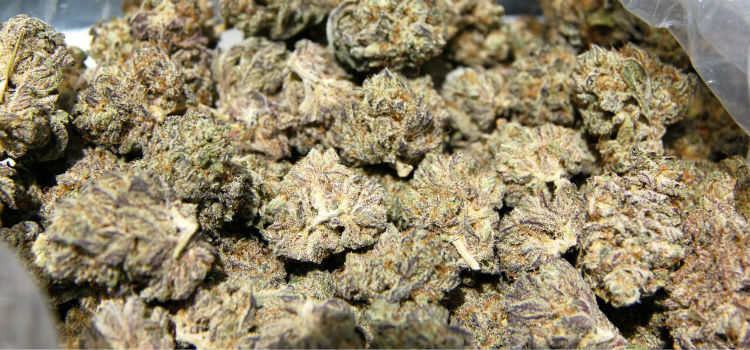

 When it is fully legalized, cannabis will be regulated just like any other consumable product. Scientific testing to determine potency and safety will be mandated, as it is in Washington and Colorado. However, producers in these states have frequently complained about inconsistent results when they have submitted samples from the same lot to different labs. This has caused many to question the validity of mandated testing, the individual laboratories, and the science of cannabis testing itself.
When it is fully legalized, cannabis will be regulated just like any other consumable product. Scientific testing to determine potency and safety will be mandated, as it is in Washington and Colorado. However, producers in these states have frequently complained about inconsistent results when they have submitted samples from the same lot to different labs. This has caused many to question the validity of mandated testing, the individual laboratories, and the science of cannabis testing itself.

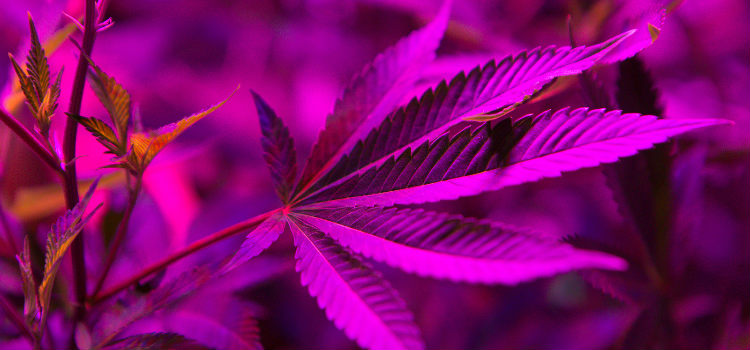


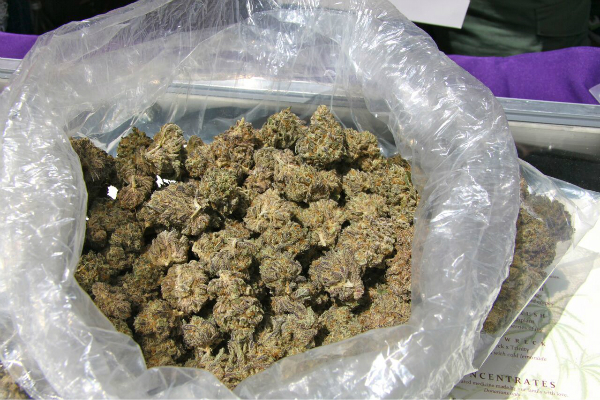




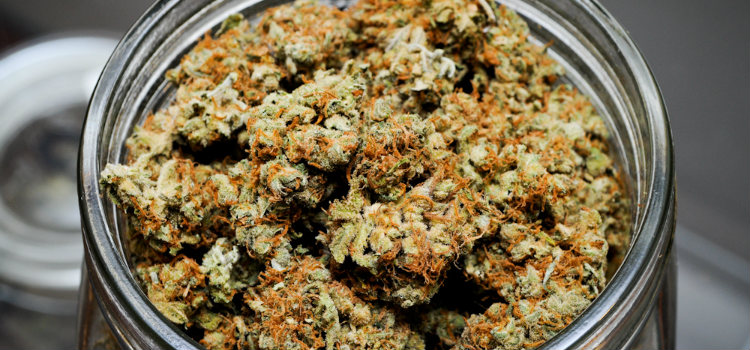
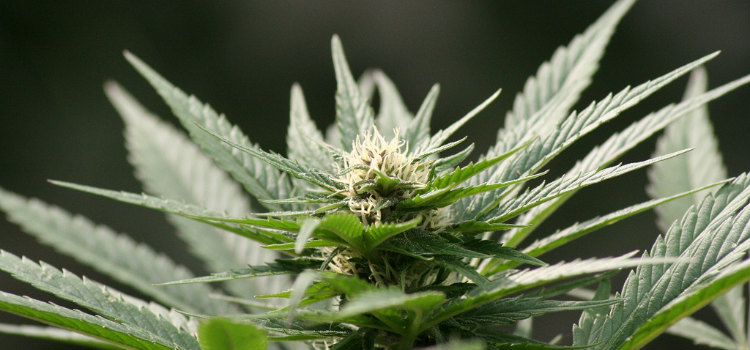

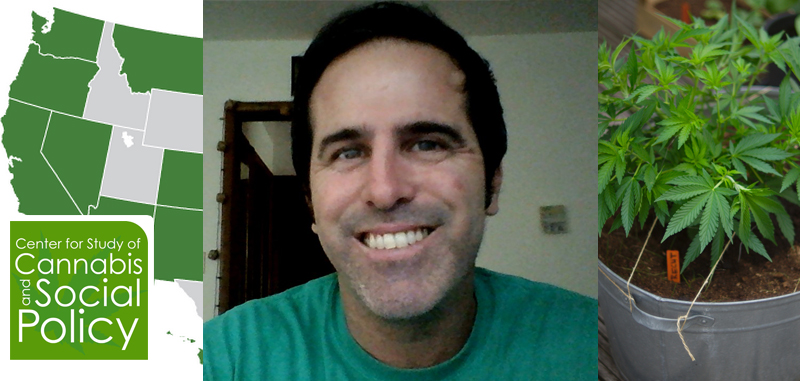
 The cannabis legalization movement has gained serious momentum over the past three years, and with Congress’s decision to restrict the DEA from interfering with state medical programs and the Obama Administration’s recent move opening the doors to medical marijuana research, it seems that the movement’s future is looking stronger each day. While it would be easy to speculate that these events are simply an inevitable fate brought on by the bad karma of prohibition, the reality is that all of this progress is due to the hard work of activists and experts who have dedicated their lives to cannabis policy reform.
The cannabis legalization movement has gained serious momentum over the past three years, and with Congress’s decision to restrict the DEA from interfering with state medical programs and the Obama Administration’s recent move opening the doors to medical marijuana research, it seems that the movement’s future is looking stronger each day. While it would be easy to speculate that these events are simply an inevitable fate brought on by the bad karma of prohibition, the reality is that all of this progress is due to the hard work of activists and experts who have dedicated their lives to cannabis policy reform.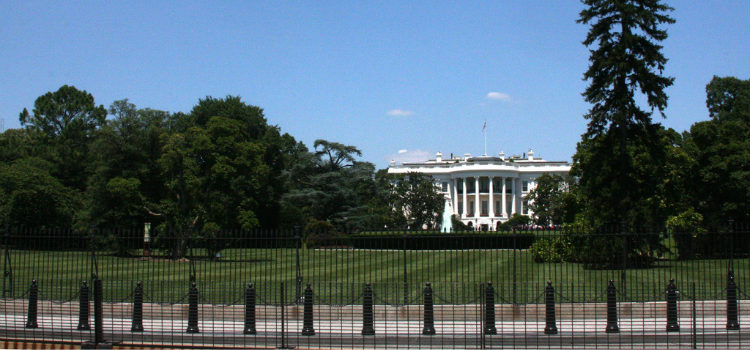

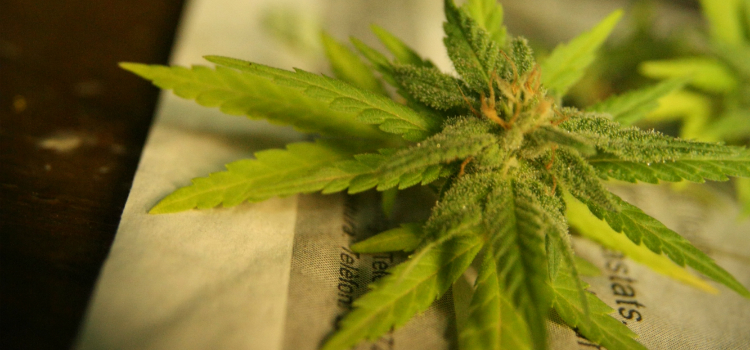
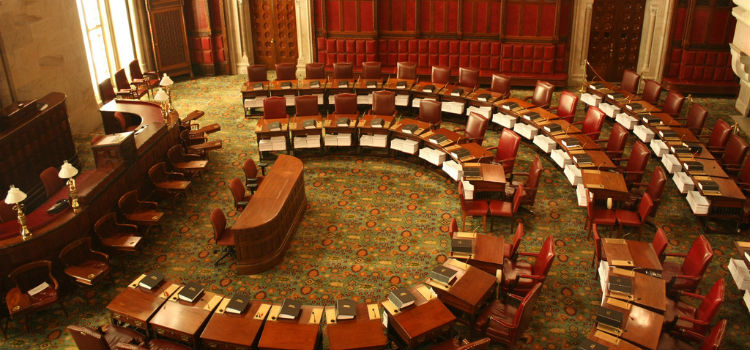
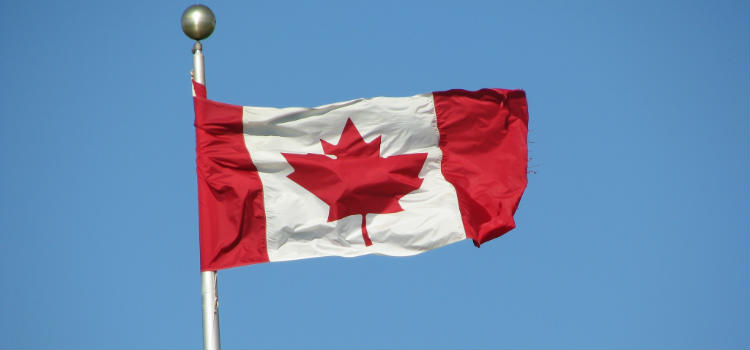

 When the acceptance of medical cannabis goes mainstream, the pharmaceuticals landscape could face the most significant disruption of its existence. Due to the federal classification of marijuana as a Schedule 1 controlled substance, researching possible medical uses for the plant has been difficult. However, this has not stopped some companies from conducting their own research and clinical trials of cannabis medicines.
When the acceptance of medical cannabis goes mainstream, the pharmaceuticals landscape could face the most significant disruption of its existence. Due to the federal classification of marijuana as a Schedule 1 controlled substance, researching possible medical uses for the plant has been difficult. However, this has not stopped some companies from conducting their own research and clinical trials of cannabis medicines.
